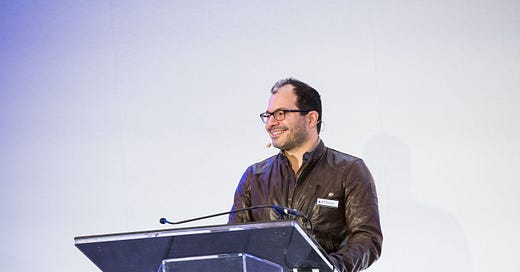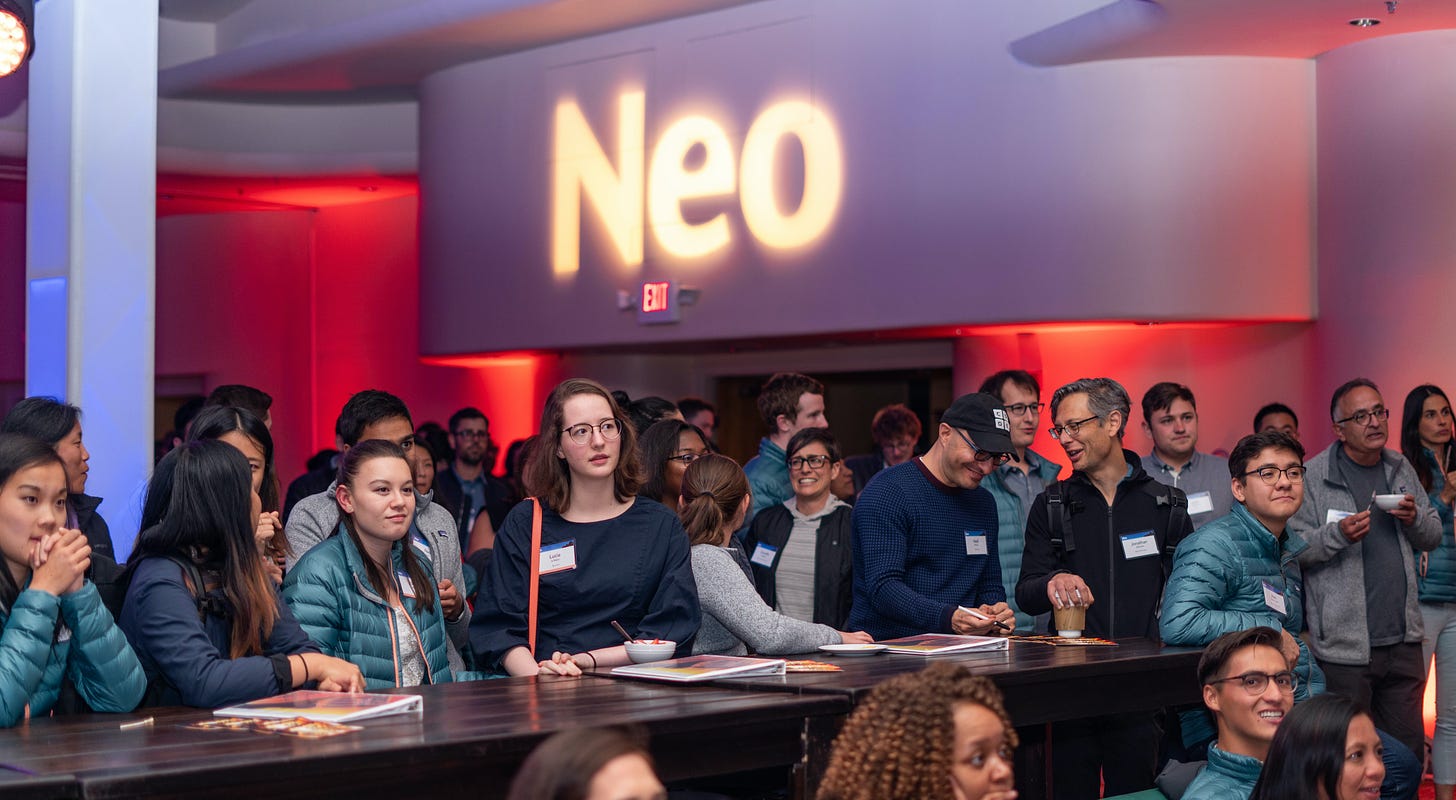Ali Partovi Wants to Beat the Old YC
The storied angel investor wants to reinvent the elite startup accelerator
Ali Partovi told me he’s been reading my Y Combinator coverage with great interest.
In December, in an interview with YC President Geoff Ralston, I wrote that the seemingly unrivaled startup accelerator wanted to grow to have 1,000 companies in a single batch.
Ralston bragged that he’s “not so interested in the competition” since YC has put itself “in a really unique position of sort of having the first choice, first look at almost every startup that matters.”
Ralston told me, “I worry less about the competition and more about disruption, which is future competition that I don’t understand yet.”
Partovi wants to build something that Ralston should understand.
Partovi wants to create an elite accelerator for coders fresh out of top universities, or a few years into their first coding job. That’s who YC used to mostly attract.
“We are competing with Y Combinator circa 2010 or 2012,” Partovi told me. “Y Combinator today is not what we’re competing with. The top students from top universities aren’t applying to Y Combinator today.”
So today, Partovi is launching a 20-slot program called, the “Neo Accelerator.” It’s part of a fund that he’s been running for the last half decade that has been building a network of technically talented and diverse recent college graduates.
Neo’s accelerator aims to be many of the things YC is not these days. It’s going to be in person. It’s going to be oriented toward students coming out of top U.S. universities. It’s going to be small.
At the end of the accelerator, founders will pitch to prospective employees, rather than investors, reflecting how talent, not money, has become the scarcest thing in Silicon Valley. Neo plans to give companies enough money — $625,000 — that they don’t need to worry too much about raising more right away.1 (YC recently started investing $500,000 in exchange for more equity.)
I’m usually skeptical when people try to sell me a new accelerator. Lots of people have tried to create their own batch systems for building companies. Many early stage investors would prefer that sort of systematized approached to the hard work of hunting down one-off companies. But nobody has ever been able to chip away at YC’s position as the first-choice for elite founders looking to join an accelerator.
Partovi may have a shot.
He brings together two key ingredients to creating that lighting in a bottle in 2022.
First, he’s centering diversity at the onset. The community that he’s been building over the last few years has explicitly sought to attract women and minorities. He brags that his team is half women and 12% black. He’s someone who advocates for more inclusive tech interviews, humanizes immigrants with his own story of coming to the U.S. from Iran, and donates to the NAACP Legal Defense Fund. He’s the co-founder of Code.org, which is run by his twin brother, Hadi Partovi. The non-profit organization works to bring coding skills to students early, helping to democratize access to the technology industry.
Partovi is also a super networker, connected across Silicon Valley. His second cousin is Uber CEO Dara Khosrowshahi. Partovi befriended Sequoia Capital investor Alfred Lin on the crew team at Harvard. Partovi played an active role in helping shepherd Dropbox’s ascent as it was one of the busiest Silicon Valley startups. The Partovis were early investors in Facebook. With Neo, Partovi is an investor in hot startups Vanta, Ramp, and Scale. (It’s worth noting here that Dropbox, Vanta, and Scale all participated in YC.)
Partovi is an expert in getting close to the startups that Silicon Valley insiders chatter about. And he helps funnel the most talented computer science students to those startups.
Partovi isn’t the only one who sees YC’s weakness when it comes to the most pedigreed, young startup founders. Josh Buckley clearly has that in mind with his fund Hyper, which pairs distribution in the form of Product Hunt with an early stage fund. Recently, Buckley announced the creation of Prologue, a sort of parent company for Hyper and Product Hunt. (I’ll admit I remain pretty confused by Buckley’s whole empire but there’s no question that he has the connections.)
Last night, I sat in on Partovi giving the pitch for his new accelerator to a group of Stanford undergraduates and recent graduates. The small group of students seemed to have little interest in going the traditional accelerator route. Explaining their reasoning, the attendees wrote into the Zoom chat things like “batch sizes are much higher,” “less mentorship and higher opportunity cost of equity [that] accelerators take,” and “terms usually not as competitive.”
Partovi seems to have developed an accelerator tailor built to address those concerns.
“If you are leaving a job at Figma, or Robinhood, or Stripe to start a company, then you already have a pretty strong signal,” Partovi says. “Being part of a vast cohort of 2,000 people a year does not actually give you any incremental prestige — or stronger signal.”
This isn’t necessarily a zero-sum fight. If YC is right in thinking that there are far more startups worth funding, then even if Neo can succeed in slicing off a small sliver of them, there are plenty of startups to go around. And it’s still an uphill battle even with Partovi’s connections and good intentions. It’s hard to overstate how dominant YC is.
Still, more competition is good for founders.
Y Combinator founder Paul Graham wrote in August 2010, “One of our axioms at Y Combinator is not to think of deal flow as a zero-sum game. Our main focus is to encourage more startups to happen, not to win a larger share of the existing stream.”
He concluded, “‘Make something people want’ applies to us too.”
Partovi describes the investment agreement this way: “$625K on unparalleled terms; $20M ‘floor’ valuation.”
He writes,
“We offer you a better deal than any other accelerator, in two parts:
$125K for 2.5% ($5M post-money valuation safe)
$500K safe with $20M Floor
This deal includes a Neo Safe with Floor Valuation, a new form of uncapped safe. The valuation won’t go below the Floor Valuation even if your subsequent round is at a lower valuation; it can go higher when you raise more in a qualifying subsequent round within 6 months. This is the most generous form of safe ever.”






